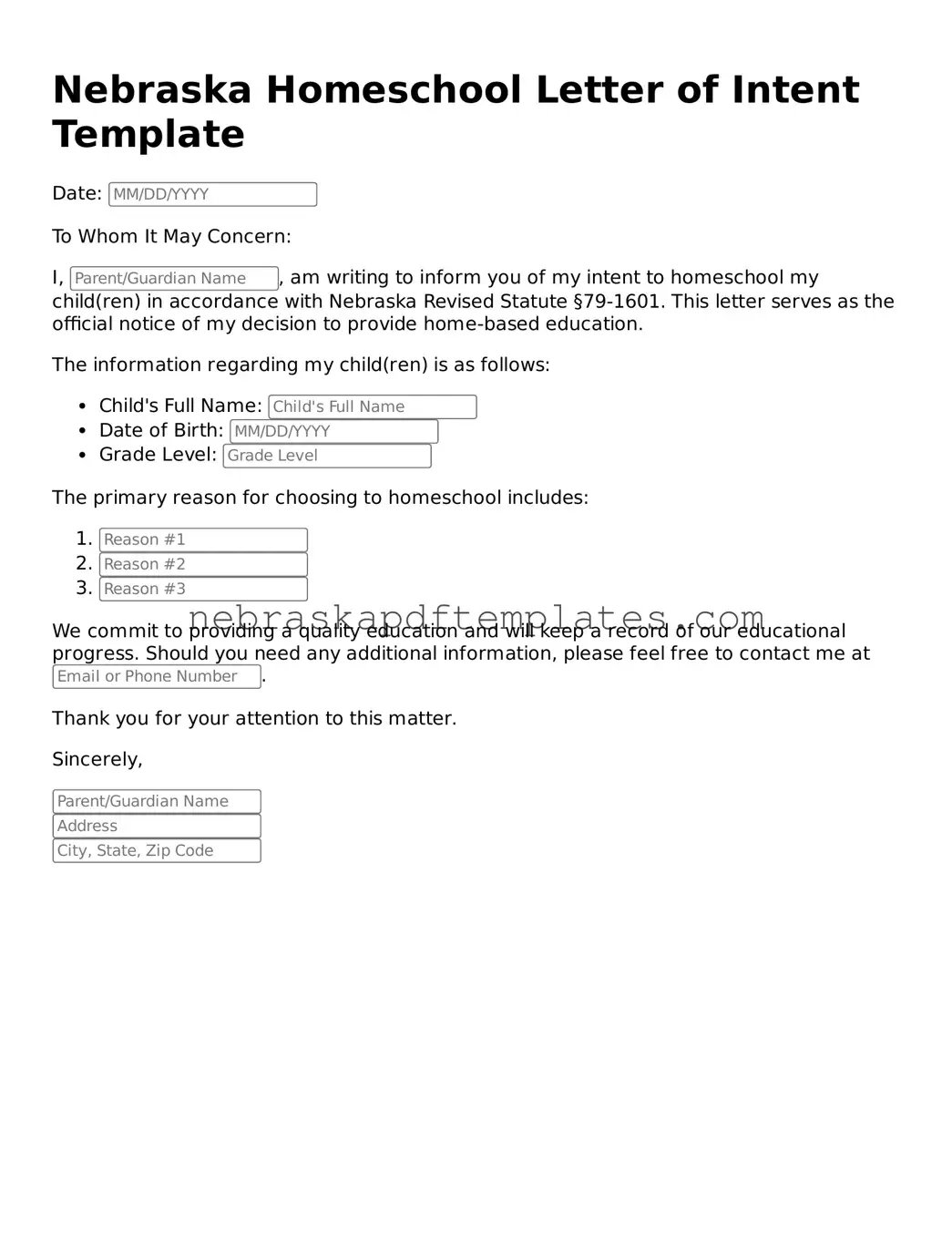Attorney-Verified Homeschool Letter of Intent Document for Nebraska
The Nebraska Homeschool Letter of Intent is a crucial document that parents must submit to officially notify their school district of their intention to homeschool their children. This form serves as a formal declaration and outlines the educational plans parents have for their students. Ensuring that this form is completed accurately and submitted on time is essential for compliance with state regulations.
Take the first step in your homeschooling journey by filling out the form. Click the button below to get started!
Access Editor Here

Attorney-Verified Homeschool Letter of Intent Document for Nebraska
Access Editor Here
Finish your form now
Finalize Homeschool Letter of Intent online — edit, save, and download effortlessly.
Access Editor Here
or
➤ Homeschool Letter of Intent
